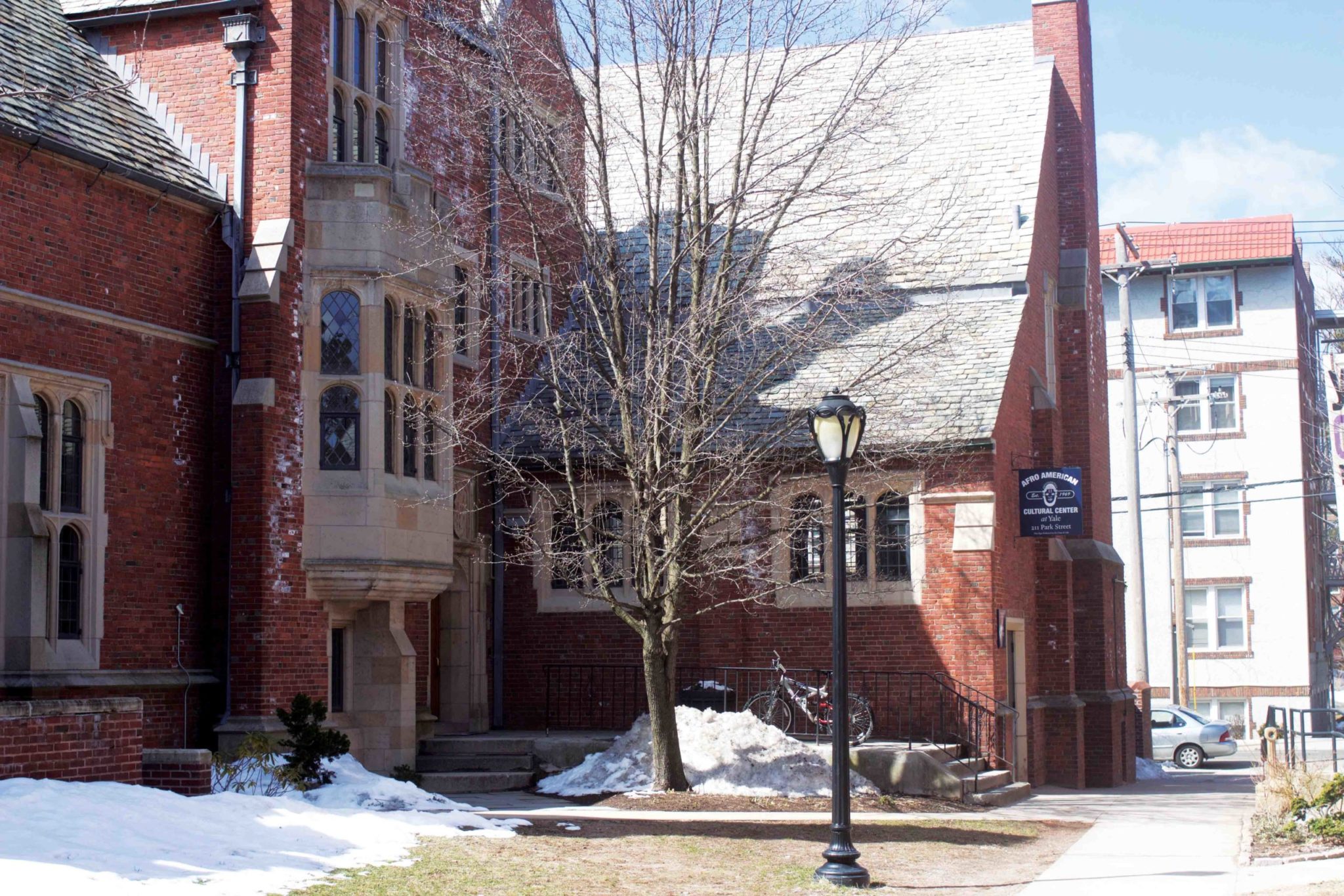
YDN
More than 200 organizers, activists and students gathered at Yale Law School on Saturday for the 2020 Critical Race Theory Conference.
The conference — organized by Jordan Brewington LAW ’21 and TJ Grayson LAW ’21 — discussed reparations and the prison abolition movements in the context of race. The day-long event — the fourth biennial conference on critical race theory — drew many graduate and law students to a series of programs, including a keynote address, panels, discussion sessions and closing remarks.
“Once we arrive at Yale, we somehow forget we are powerful as students,” Brewington said. “The panelists spoke about how much power we hold as students to radically change our institutions.”
The conference included six breakout sessions, three of which followed the panels. The breakout sessions featured topics such as “International and Comparative Perspectives on Reparations,” “Movement Lawyering and Prison Abolition” and “Communicating Abolition: How Storytelling, History, and Compassion Can Counter Pushback.”
The organizers said that the near absence of critical race theory within the law school curriculum was a key motivator for the conference. They added that the stringency of the law school curriculum undermines the validity and importance of individual lived experiences.
“Many elements of critical race theory … the importance of storytelling, speaking from lived experience are not something you experience in law school,” said Brewington.
Khiara Bridges, a law professor from University of California, Berkeley, kicked off the conference with a keynote presentation explaining critical race theory, often referred to as CRT. Bridges explained that CRT challenges the traditional liberal definition of racism. She said that unlike that traditional definition, CRT posits that society does need radical reformation in order to address the country’s racism problem.
Bridges casts doubts on the legitimacy of the institutions created during times of racial segregation and exclusion –– including law schools. White dominance, she said, is imbedded in these institutions and comprises the “very essence” of American relations.
“CRT believes there is a race problem, and that racism is a normal feature of American society,” Bridges said. “This is saying that racism is the rule, rather than the exception. We should not understand acts of racism to be deviations from an otherwise just and fair status quo. Rather, the rule is one of racial injustice.”
After Bridges’ keynote address, five speakers held a panel discussion about the reparations movement, which advocates government payment for descendants of slaves. Robert Wesley, a law professor at Tulane University, stated that the United States has paid a form of reparations in the past — but the beneficiaries were slave owners, seeking compensation for their loss of property. He said that the U.S government owes money to the descendants of slaves for the uncompensated labor performed by their ancestors.
Nkechi Taifa, another panel member, discussed how the United States has never taken formal responsibility for its role in the enslavement or post-slavery segregation of African Americans. However, the government has, she continued, passed a Japanese American redress bill which paid reparations to the families of those people who were confined in internment camps during World War II.
“If you can do it for the Japanese Americans,” she said, “there is absolutely no reason whatsoever why [the government] cannot do it for black folk here in this country.”
Grayson, one of the organizers, said the breakout sessions provided a valuable opportunity for attendees to engage in meaningful dialogue with panelists, in ways that “force panelists to think more deeply about their own ideologies,” moving the conference “from a lecture to a discourse.”
Brewington and Grayson spoke of ways that they and other law students are working to increase the teaching of critical race theory in the law school curriculum. They specifically pointed to a CRT reading group at the law school, which is open to anyone who wants to join, including undergraduates.
Grayson concurred with Brewington’s statement about how individual lived experiences are not always recognized within a law school setting. According to Grayson, a common topic of discussion within the reading group is that students “coming from marginalized identities had to go through a lot of work before we got to law school … what this institution does is it tries to take away this learning and processing that we had to do before we got here.”
Brewington hopes that the conference will not only increase focus on critical race theory within the institutional framework of Yale Law but that it will also get “people out of their chains of their mind and in thinking about reparations as a reality in their lifetimes.”
“Black and indigenous communities have systematically been told we are not deserving of a response for centuries of oppression,” said Brewington. “I hope that people make demands to legislators, professors, to ourselves.”
In terms of institutional changes, Brewington and Grayson hope that the law school appoints more critical race theorists to the faculty. Grayson noted that Yale Law School had only recently hired a full time critical race theory scholar, Gerald Torres LAW ‘77, who studies environmental justice and Indigenous law.
He noted that the activism of the Native American Law Students Association was integral to Torres’ appointment.
“What we are doing now is insurgency work, we had to force ourselves into these spaces … critical race theory had to force itself into the Academy because of the resistance coming from the legal academy itself,” Grayson said. “Unless people do insurgency focused work, people are going to keep shoving us down.”
Yale Law School is located on 127 Wall Street.
Julia Brown | julia.k.brown@yale.edu
Neha Middela | neha.middela@yale.edu







